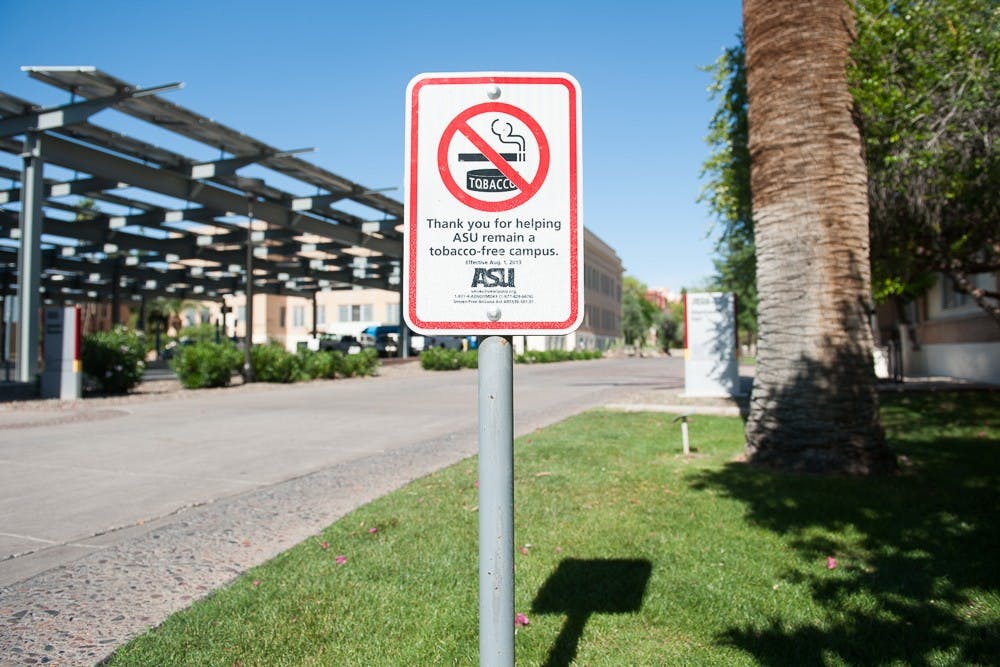There’s nothing that makes me want to light up more than anti-smoking ads.
You know which ones I’m talking about; the one where the guy pulls out his tooth to buy a pack of menthols or the one where the lady is smoking through her trachea.
These ads are so morbid, they just make me want to go outside for a smoke — sometimes out of spite.
I didn’t fall asleep during D.A.R.E., so I’m not ignorant about the life-threatening dangers of smoking. I know it causes cancer, emphysema, premature aging and gum disease — a whole laundry list of problems I don’t need. It seems logical: if you smoke, you’re in store for a plethora of awful things, so you should quit.
But facts aren’t a powerful motivator; fear is. That’s what these ads are meant to do — to play to our fears and terrify us into quitting (or never picking up a cigarette in the first place). This theory could also very well do the opposite.
We, as human beings, have the ability to protect ourselves from existential anxiety when brought aware of our own mortality with what is called terror management theory.
This theory implies that fear-based anti-smoking ads are ineffective, especially if the smoker derives their self-esteem from smoking because it “makes them look cool.”
“Messages that amplify the possibility of death promote behaviors that enhance self esteem. Thus, if individuals derive self esteem from smoking, cigarette packages that underscore the health hazards of this behavior should deter, rather than encourage, abstinence,” according to sychlopedia.
You don’t have to listen to me, though. In fact, there has been research on anti-smoking ads that would prove me wrong. According to the Center for Disease Control, the center's “tips from former smokers” campaign resulted in a 12 percent relative increase in population level quit-attempts. I’m a little skeptical of these results, though, as most of the researchers on this study were affiliated with the CDC.
People aren't going to quit smoking unless they want to. Instead of shaming people to quit, anti-smoking campaigns should use their resources to advertise resources to help people kick tobacco forever.
My love affair with cigarettes has always been pretty casual. Sometimes, I’ll chain smoke; other times, I won’t crave a cigarette for weeks at a time. It has always depended on my stress level that week or the state of my checking account. When I finally do decide to quit, it won’t be because of some anti-smoking ad I see on TV or online.
Related Links:
ASU to crack down on tobacco-free policy
Anti-smoking campaigns put national movement in hands of teens
Reach the news editor at kgrega@asu.edu or follow @KelcieGrega on Twitter.
Editor’s note: The opinions presented in this column are the author’s and do not imply any endorsement from The State Press or its editors.
Want to join the conversation? Send an email to opiniondesk.statepress@gmail.com. Keep letters under 300 words and be sure to include your university affiliation. Anonymity will not be granted.
Like The State Press on Facebook and follow @statepress on Twitter.




